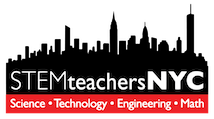This workshop will focus on ways to help children in the elementary grades (K-5) learn to ask and answer questions, make predictions, gather evidence, find patterns, and communicate their ideas. Through a series of hands-on activities and discussions, participants will explore how to use inquiry-driven, collaborative, and phenomena-based investigations with elementary students, as well as how to set up and run an engineering design challenge. Additionally, we will spend time focusing on how to incorporate coding and computational thinking in the elementary curriculum. In “student mode,” we will look at ways to encourage children to use scientific tools and attitudes to make connections as they explore the world around them. In “teacher mode,” participants will reflect on their own experiences with elementary science and consider how to best prepare our next generation of scientists and engineers. The workshop will consist of periods of synchronous and asynchronous learning, providing participants with the opportunity to work on their individual practice while also engaging in meaningful discussion with other educators. By the end of the workshop, participants will deepen their understanding of instructional strategies that support the learning of scientific skills while integrating mathematics, technology, design thinking, literacy, and social studies.

